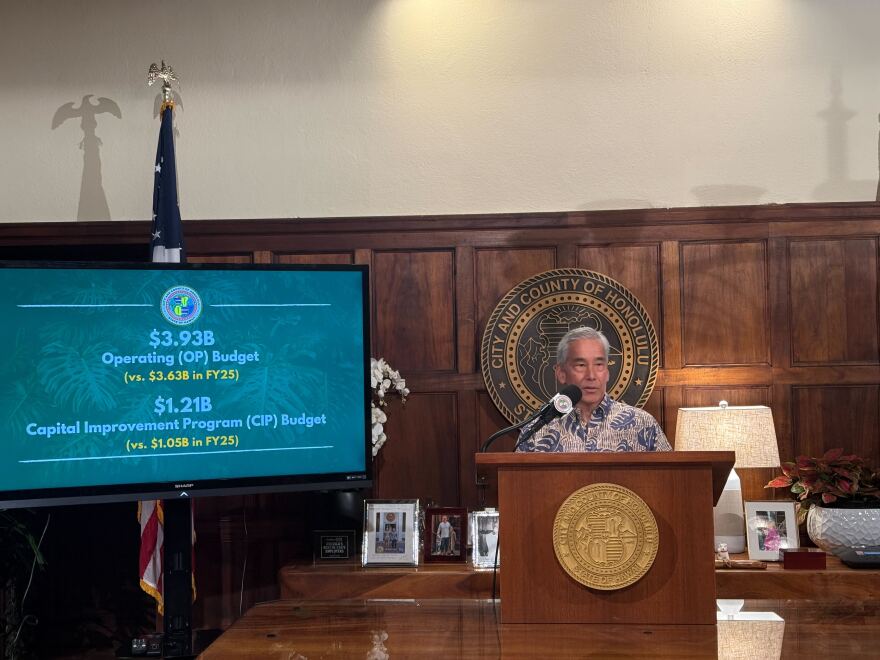The Honolulu City Council is considering several measures that would decrease property taxes for seniors, landlords, and homeowners who live on their property.
The Budget Committee advanced two of the measures on Tuesday. One would increase the amount of exempted assessed value on residential property owned by those over 65 years old by $20,000. Another would do the same increased exemption for those who own and live in their home.
For seniors, $180,000 of the assessed value of their homes would be exempted from property taxes — up from the current $160,000.
For those who live and own their homes, $140,000 of the assessed value of their homes would be exempted from property taxes — up from the current $120,000.
For example, a senior living in a house with an assessed value of $1 million, with the proposed exemption of $180,000, would only have to pay property tax on $820,000 of the assessed value.
Budget and Fiscal Services Director Andy Kawano was concerned about the lost revenue.
“We don't oppose the bill. We have concerns that, if the exemptions grow too large, we have to address fiscal impacts. And therefore, it would make a lot of sense to get into a permitted interaction group to talk about all of the active bills that impact real property taxes,” he said.
“In terms of lost city revenue, we would have to reprioritize what we have available to programs, activities, and other services that the city provides.”
Kawano estimated that the increased exemption for seniors would cost the city about $5.6 million. The expanded exemption for those who live and own their property would cost the city another $5.1 million.
If these expansions pass, it would save those who qualify about $70 yearly.
The Budget Committee also discussed a measure that would allow properties designated as a long-term rental for at least four years to be taxed at the lower residential rate. The bill aims to “address Oʻahu's housing crisis and high cost of rental housing and provide a mechanism to support our local residents through reducing taxation of real property used as a long-term residential rental."
However, Kawano said there was no guarantee that cost savings would be passed on to renters.
“ I strongly believe that if you have the ability to pay, you should pay your tax,” he said. “There has to be some kind of income factor, affordability factor in the measure if we go forward.”
The city already has a law that allows landlords who rent at a rate at or below 80% of the annual median income to apply to be taxed at the lower residential rate. However, Kawano said people have not applied. He recommended that the council work on the measure to make it more accessible for landlords.
“ We can be flexible with some of the provisions and see if we can get that to work because at least we'll know that the tax relief going to the landlord actually gets passed down to the renter,” he said.
Congress recently voted to rescind federal funding for public media stations across the country, including HPR. Now we turn to you to help keep us strong.







